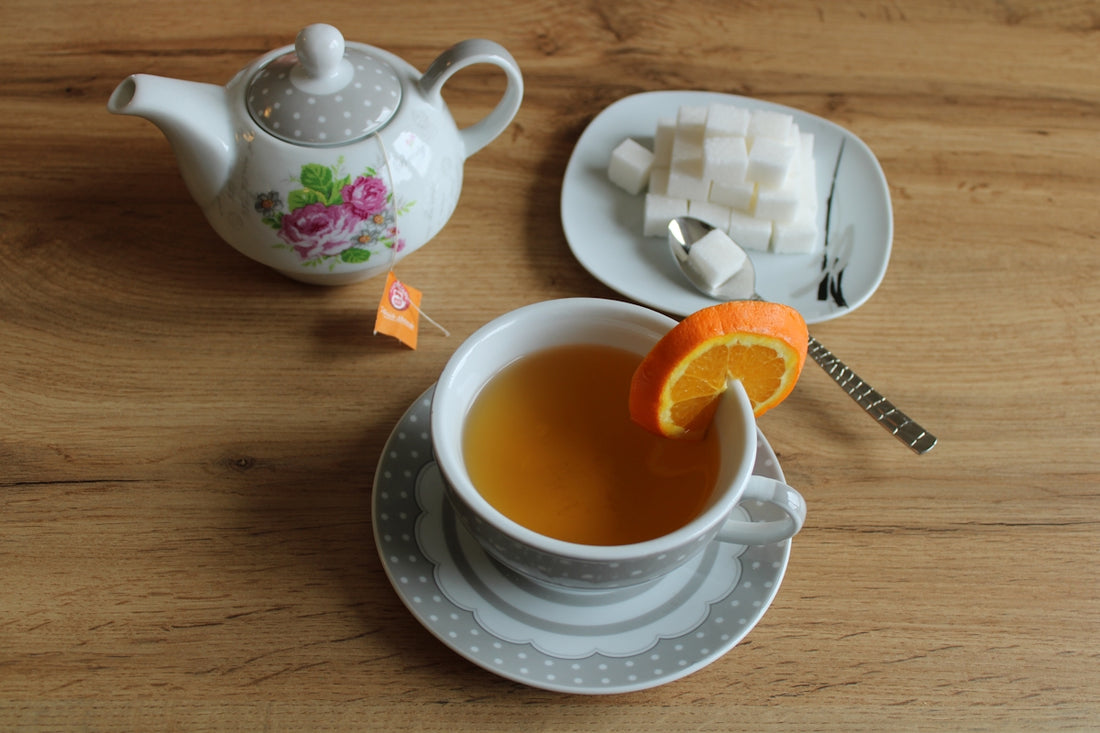
Exploring the Health Benefits of Unsweetened Chinese Tea
Tea is more than just a comforting, warm beverage; it is a tradition that dates back thousands of years and is woven into the cultural fabric of many societies around the world. One of the most revered types of tea is Chinese tea, known not only for its rich flavors and diverse varieties but also for its numerous potential health benefits. In this blog post, we will explore the health benefits of unsweetened Chinese tea, address the question "is unsweet tea good for you," and introduce you to some exquisite Chinese teas available at TeaStart.
The Tradition and Variety of Chinese Tea
Chinese tea culture is a testament to the diversity of tea types and preparation methods. Each tea offers its distinctive taste, aroma, and health benefits. Among the most popular varieties are green tea, black tea, white tea, oolong tea, and Pu-erh tea.
Green Tea
Green tea is celebrated for its high antioxidant content and fresh, light flavor. An excellent example is Anji White Tea, a unique type of green tea known for its fresh and slightly sweet taste. Anji White Tea - Fresh & Sweet Green Tea is a perfect choice for those seeking the revitalizing effect and potential health benefits associated with green tea consumption.
White Tea
White tea is the least processed among all tea types and is harvested while the tea plant's leaves are still young. This minimal processing helps retain a higher concentration of catechins, a type of antioxidant. The NO.1521 Fuding Old White Tea is a highly sought-after variety that promises a delicate flavor profile with notable health benefits.
Oolong Tea
Oolong tea combines the characteristics of black and green tea. Its unique processing method enhances its flavor and potential health benefits. The Ya Shi Xiang Dan Cong, a floral oolong, delivers a rich aroma and taste that tea enthusiasts cherish.
Pu-erh Tea
Pu-erh is a fermented tea known for its deep, earthy flavor. Its complex fermentation process is believed to offer distinct health advantages, particularly in aiding digestion and managing cholesterol levels. The No. 2 Imperial Court Pu-Erh is an exemplary ripe Pu-erh tea selection that embodies these qualities.
Health Benefits of Unsweetened Chinese Tea
Rich in Antioxidants
Tea, especially green, white, and oolong varieties, is rich in polyphenols, which are powerful antioxidants. These compounds help neutralize harmful free radicals in the body, potentially reducing the risk of chronic diseases such as heart disease and cancer.
Supports Weight Loss
Many studies suggest that unsweetened tea can support weight loss efforts. Green tea, in particular, is known to boost metabolism and improve fat oxidation. Drinking tea may support a healthy weight management regimen without adding extra calories, provided you consume it unsweetened.
Improves Heart Health
The antioxidants in tea may help lower bad cholesterol (LDL) levels, improve arterial function, and reduce blood pressure, thereby supporting heart health. Regular consumption of black and green teas has been linked to a lower risk of heart disease.
Enhances Brain Function
Caffeine and L-theanine, both found in varying amounts in teas like green and oolong, work together to improve brain function. They can enhance mood, increase alertness, and improve cognitive performance. Unsweetened tea can be a healthier alternative to coffee, providing a more stable energy release throughout the day.
Strengthens Bones
Tea contains fluoride, which is beneficial for bone health. Some studies suggest that regular tea drinkers have a higher bone density and a lower risk of osteoporosis.
Aids Digestion
Pu-erh tea is particularly renowned for its digestive benefits. It can aid in nutrient absorption and soothe the stomach, making it an ideal beverage choice after meals. This tea's probiotic properties may also contribute to a healthy gut microbiome.
Is Unsweet Tea Good for You?
When pondering "is unsweet tea good for you," it's essential to consider its numerous health benefits. Unsweetened tea is low in calories, free from added sugars, and retains more of its natural antioxidants and nutrients. This makes it a wholesome beverage choice that can compliment any diet.
Moreover, opting for unsweetened tea over sugary drinks can help reduce the risk of obesity, diabetes, and other metabolic conditions. By choosing traditional unsweetened Chinese teas, you not only avoid the pitfalls associated with added sugars but also enjoy a pure and authentic tea experience.
How to Enjoy Unsweetened Chinese Tea
The preparation and enjoyment of unsweetened Chinese tea can be as simple or complex as you prefer. Using a Strainer Straw with 304 Stainless Steel Spoon can simplify the process, allowing for easy steeping and infusion, especially when on the go.
Brewing Tips
- Water Temperature: Most teas can be brewed with water temperatures between 160 to 200 degrees Fahrenheit. Each tea type may have specific temperature requirements to bring out the best flavor without bitterness.
- Steeping Time: Typically, steeping times range from 1 to 5 minutes depending on the type of tea and personal preference.
- Loose Leaf vs. Teabags: Opting for loose leaf tea often provides a richer flavor and greater access to the beneficial compounds within the leaves.
Conclusion
In conclusion, exploring the health benefits of unsweetened Chinese tea reveals a multitude of reasons to incorporate these time-honored beverages into your lifestyle. Whether you're savoring the delicate nuances of white tea, enjoying the vibrant aroma of oolong, or embracing the robust depth of Pu-erh, unsweetened Chinese teas offer a healthful and satisfying experience.
Visit TeaStart to explore these exquisite offerings and begin your journey into the world of Chinese tea today.
Disclaimer: The health benefits mentioned in this article are based on general information and should not be considered medical advice. Please consult with a healthcare provider for specific health-related inquiries.
